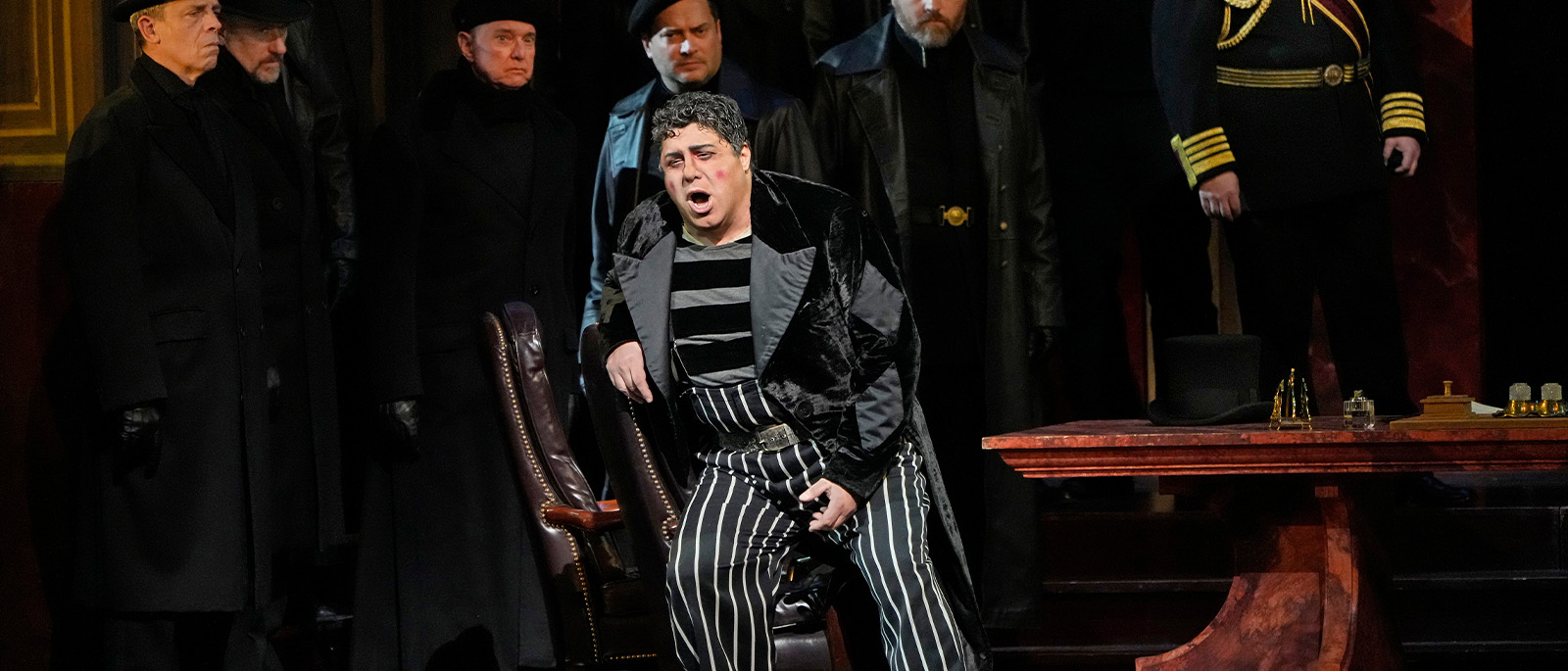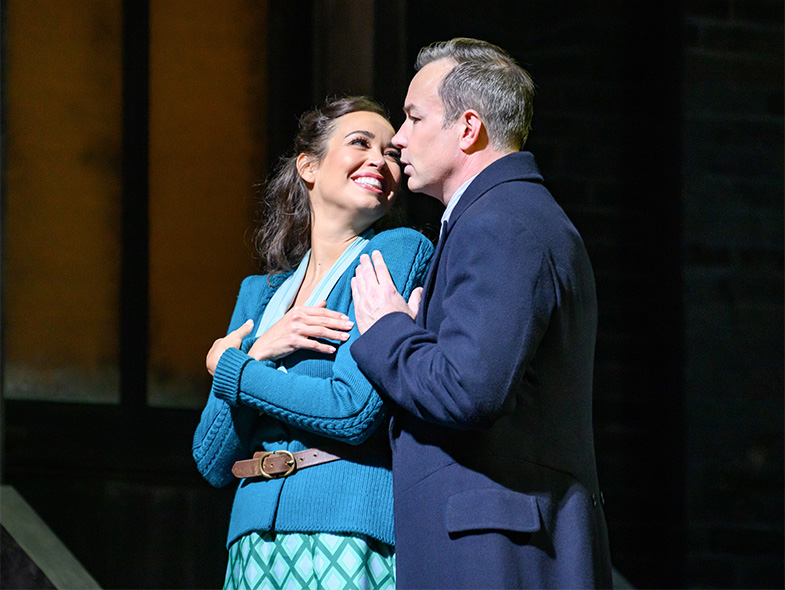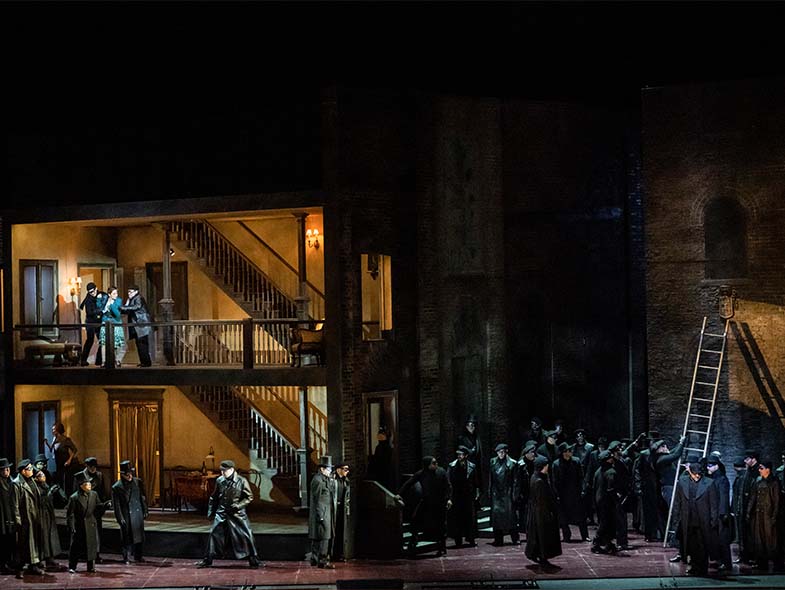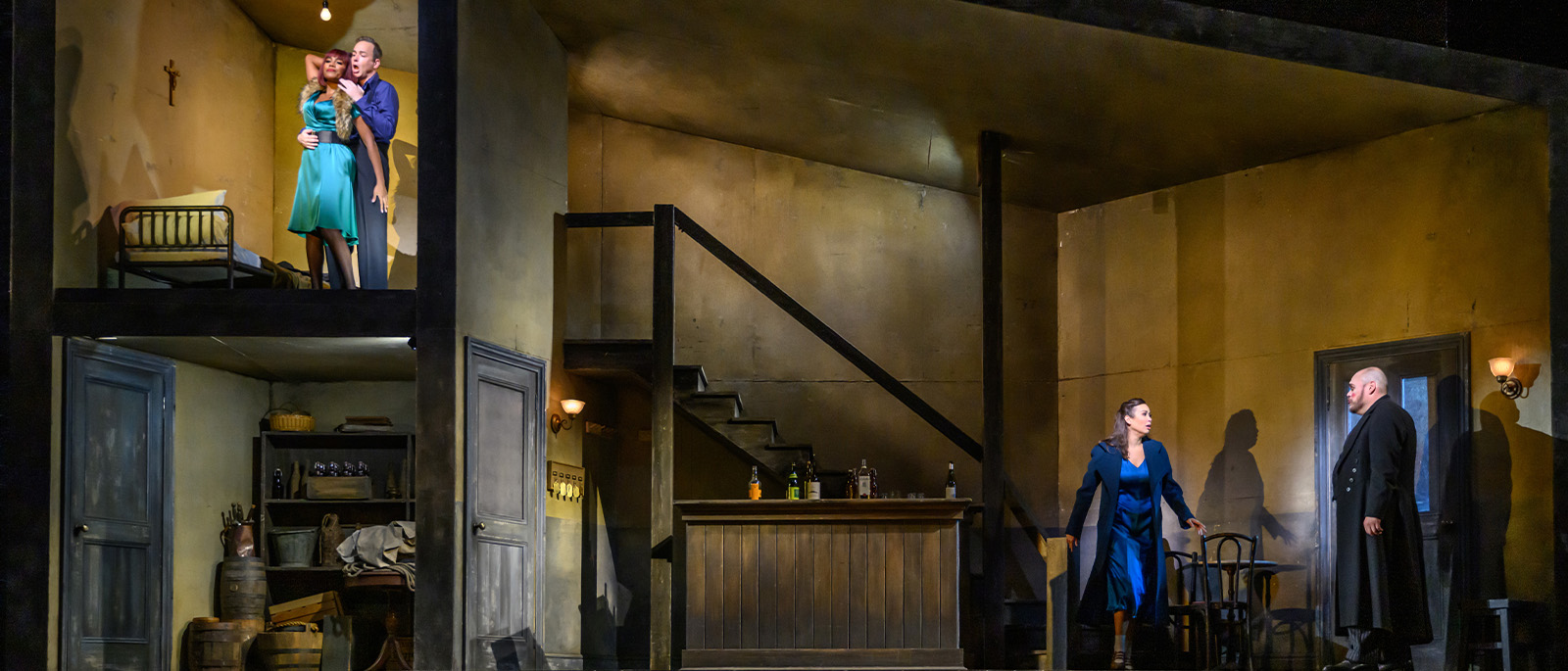
Giuseppe Verdi
Rigoletto
This production ran: Sep 30 - Jan 24
This production is in the past.
Overview
Verdi’s heartbreaking masterpiece returns, with reigning Verdi baritone Quinn Kelsey reprising his devastating portrayal of the hunchbacked court jester. Radiant soprano Nadine Sierra is his naïve daughter, Gilda, and tenor Stephen Costello is the rakish Duke of Mantua, with Maestro Pier Giorgio Morandi on the podium to conduct Bartlett Sher’s Weimar-inspired production. A second run of performances features the Met debut of rising tenor Pene Pati, alongside soprano Erin Morley and baritone Luca Salsi, conducted by Daniele Callegari.
Production a gift of C. Graham Berwind, III - Director, Spring Point Partners LLC; the Gramma Fisher Foundation, Marshalltown, Iowa; and Mr. and Mrs. Paul M. Montrone
Revival a gift of C. Graham Berwind, III and Viking
In cooperation with Staatsoper Berlin
Languages
Languages sung in Rigoletto
Sung In
Italian
Titles
Title languages displayed for Rigoletto
Met Titles In
- English
- German
- Spanish
- Italian
Timeline
Timeline for the show, Rigoletto
Estimated Run Time
2 hrs 50 mins
-
House Opens
-
Act I
65 mins
-
Intermission
30 mins
-
Acts II and III
75 mins
-
Opera Ends

World premiere: Teatro la Fenice, Venice, 1851. A dramatic journey of undeniable force, Rigoletto was immensely popular from its premiere and remains fresh and powerful to this day. The story, based on a controversial play by Victor Hugo, tells of an outsider—a hunchbacked jester—who struggles to balance the dueling elements of beauty and evil that exist in his life. Written during the most fertile period of Verdi’s artistic life, the opera resonates with a universality that is frequently called Shakespearean.
Creators
In a remarkable career spanning six decades in the theater, Giuseppe Verdi (1813–1901) composed 26 operas, at least half of which are at the core of today’s repertoire. His role in Italy’s cultural and political development has made him an icon in his native country. Francesco Maria Piave (1810–76), Verdi’s librettist for Rigoletto, collaborated with him on ten works, including Ernani, La Traviata, La Forza del Destino, and the original versions of Macbeth and Simon Boccanegra.
PRODUCTION
Bartlett Sher
SET DESIGNER
Michael Yeargan
COSTUME DESIGNER
Catherine Zuber
LIGHTING DESIGNER
Donald Holder

Composer
Giuseppe Verdi
Setting

Victor Hugo’s 1832 play Le Roi s’Amuse, set at the court of King François I of France (circa 1520), is a blatant depiction of depraved authority. In adapting it, Verdi and Piave fought with the Italian censors and eventually settled on moving the story to the non-royal Renaissance court of Mantua, while holding firm on the core issues of the drama. In the Met’s production, the action unfolds in Weimar Germany in the 1920s, a time and place with surprising parallels to the decadent—and dangerous—world of the original setting.
Videos
Articles
Music
Rigoletto contains a wealth of melody, including one that is among the world’s most famous: “La donna è mobile.” All the opera’s solos are rich with character insight and dramatic development. The famous Act III quartet, “Bella figlia dell’amore,” is an ingenious musical analysis of the diverging reactions of the four principals in the same moment: the Duke’s music rises with urgency and impatience, Gilda’s droops with disappointment, Rigoletto’s remains measured and paternal, while the promiscuous Maddalena is literally all over the place. In the context of the opera, the merely lovely music becomes inspired drama.
